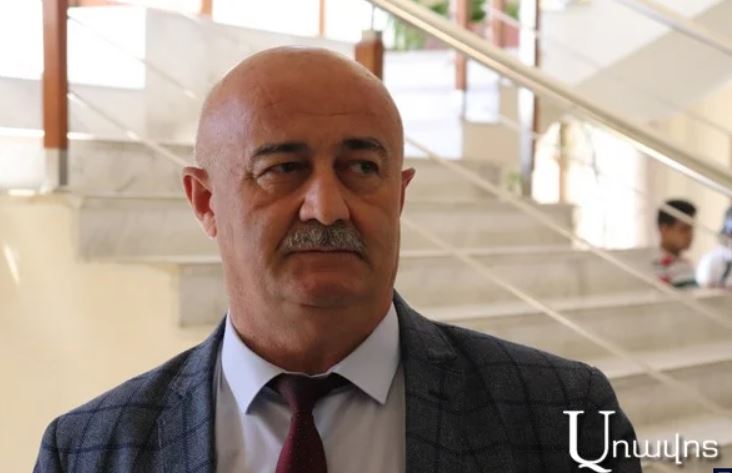The Prime Minister often speaks about the opening of regional communications. We asked Hovik Aghazaryan, a member of the Civil Contract and the NA Committee on Economic Affairs, what is Armenia’s benefit there politically and economically. Aghazaryan started listing the benefits.
“Look, we’re extracting copper ore, enriching it a bit, and exporting it. It would be much better for it to become pure copper, that is, for us to have a copper smelter and then export it as a precious material. It is impossible to have a copper smelter without serious railway communication, because there are problems. Acids form, and what should be done with those acids? For example, if the roads are opened, we will send those acids somewhere.” When we said that we could solve the issue by opening a railway with Iran, so why is it obligatory for us to give a route to Azerbaijan through Zangezur, Aghazaryan answered, “It is not with Iran, but even if we export to Russia through Azerbaijan. The train route to Russia and Iran is very short and very cheap. Unblocking the roads is good for us and for them, of course. But we must be guided by the principle that whoever uses that advantage wisely will benefit. It’s natural, if we do not use it wisely, we will suffer as a result.”
In response to the question about what risks he sees if the roads are opened, Aghazaryan answered, “I do not see any risks. I do not see any. We must learn to live with our neighbor. Today, relations are hostile, but they may change in 100 years. We must learn to live even with enemy neighbors.” In response to the question of how he imagines such a coexistence when Vazgen Sargsyan said that the Turk remains a Turk and the enemy remains the enemy, Aghazaryan answered, “I imagine coexistence as follows. If you can eliminate a state of 100 million (approximately 90 + 10 million population), eliminate it, if you can, if it is in line with human things, that is another matter. If you have an enemy and your level of vengeance against them, as they say, goes off the charts, you will suffer. You always have to be prepared that they might hurt you. Therefore, you must always be strong to be able to counterattack. But if the vengeance in you was higher than the required level, you will suffer.”
In response to our surprise about how children in kindergartens in Azerbaijan are taught that “these are dogs, they are devils,” and we persuade the public to go and live in peace with them, Aghazaryan answered. “You know what, Azerbaijan teaches such things to its children, it is also inhumane. Our value system, the fact that we have lived for thousands of years- sorry, we are a nation that has come for millennia, there are nations that have disappeared, have no statehood, and nations have grown old and disappeared, but we, thank God, have not disappeared. We also fight. That fight also changes our blood in a sense, we rejuvenate from time to time, and therefore we continue to survive in this hostile environment. But survival is not enough. We must develop. If we do not develop, we will disappear.”
Read also
Upon the observation about how he must have heard the ombudsman’s report and knows how our prisoners of war were treated in Azerbaijan- they poured boiling water on the prisoners- and against that background, how does he imagine neighborhood, coexistence, peace, and brotherhood with the enemy, Hovik Aghazaryan answered, “I am not saying that this will happen the day after tomorrow. I am saying in the future. It is possible, because the civilization, Christian, Buddhist, Muslim, is getting better day by day, more developed in the moral sense, in the sense of human relations. There will come a time and they will understand that it is not possible. It is an inhuman crime to hurt a POW. Whoever has hurt a POW- one of my acquaintances, the Turks, anyone- hurting a POW is the most horrible crime.”
In response to the question about how he can talk about coexistence with criminals, Aghazaryan answered, “We call them criminals for a crime, and we try to educate them all over the world to do something tomorrow, it is a completely different situation. I repeat, it is inhumane to hurt a POW. Is it a war, is it a battlefield, do they shoot at each other? They can kill each other, that is understandable. But when someone is in captivity, it is terrible to do anything. That is why we are going to grow stronger so that our boys are not taken prisoner and so that we can release our captives.”
Hripsime Jebejyan






















































